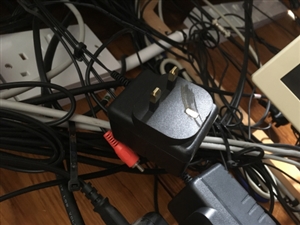
I noted several of these connecting audio visual equipment below a control desk in a large church complex. You can see that the earth pin has been deliberately removed. Must have been done before the date on the PAT stickers! Anyway, I know some of these audio guys have strange perceptions and I am wondering was the earth pin removed to avoid interference.
